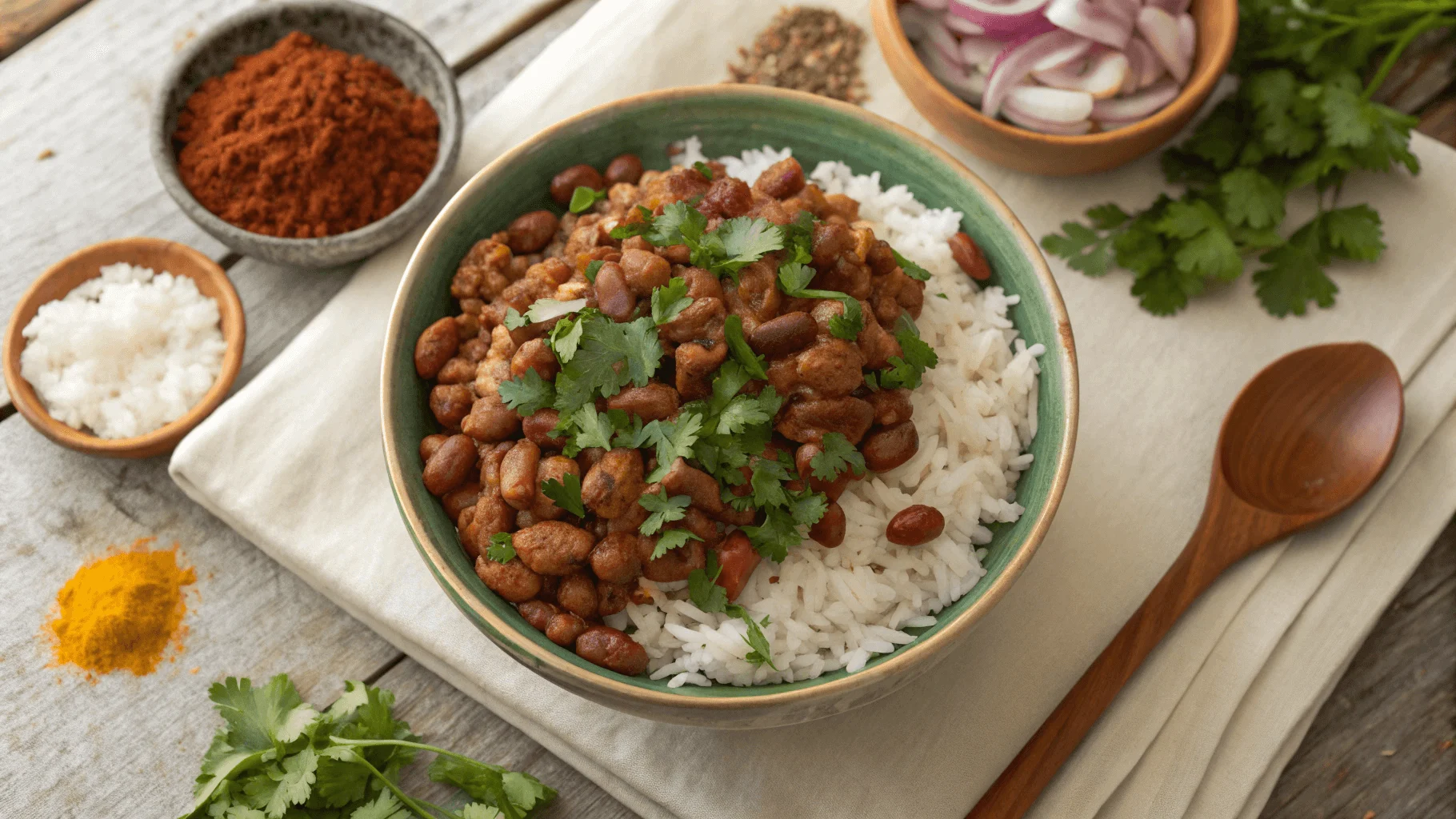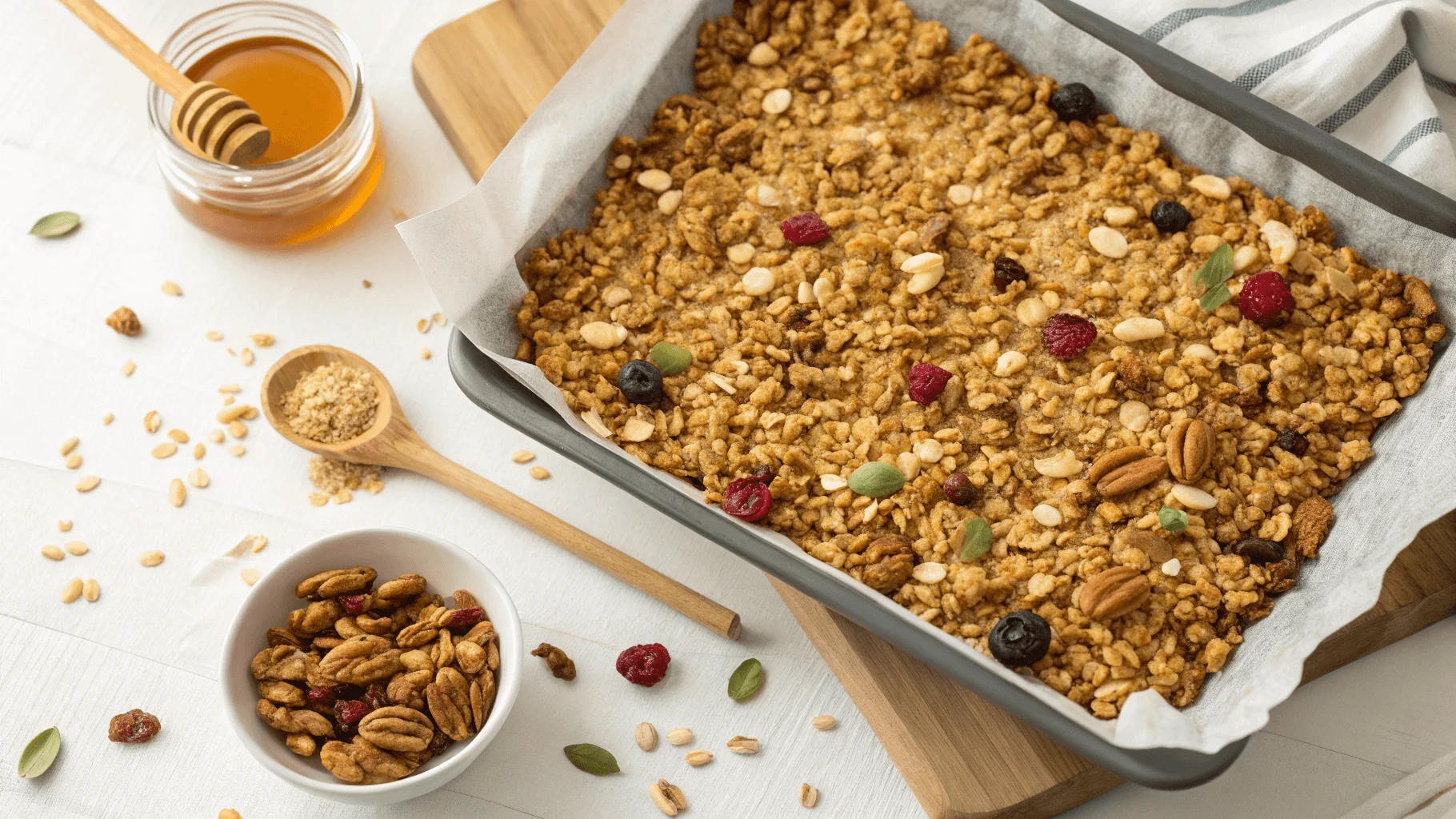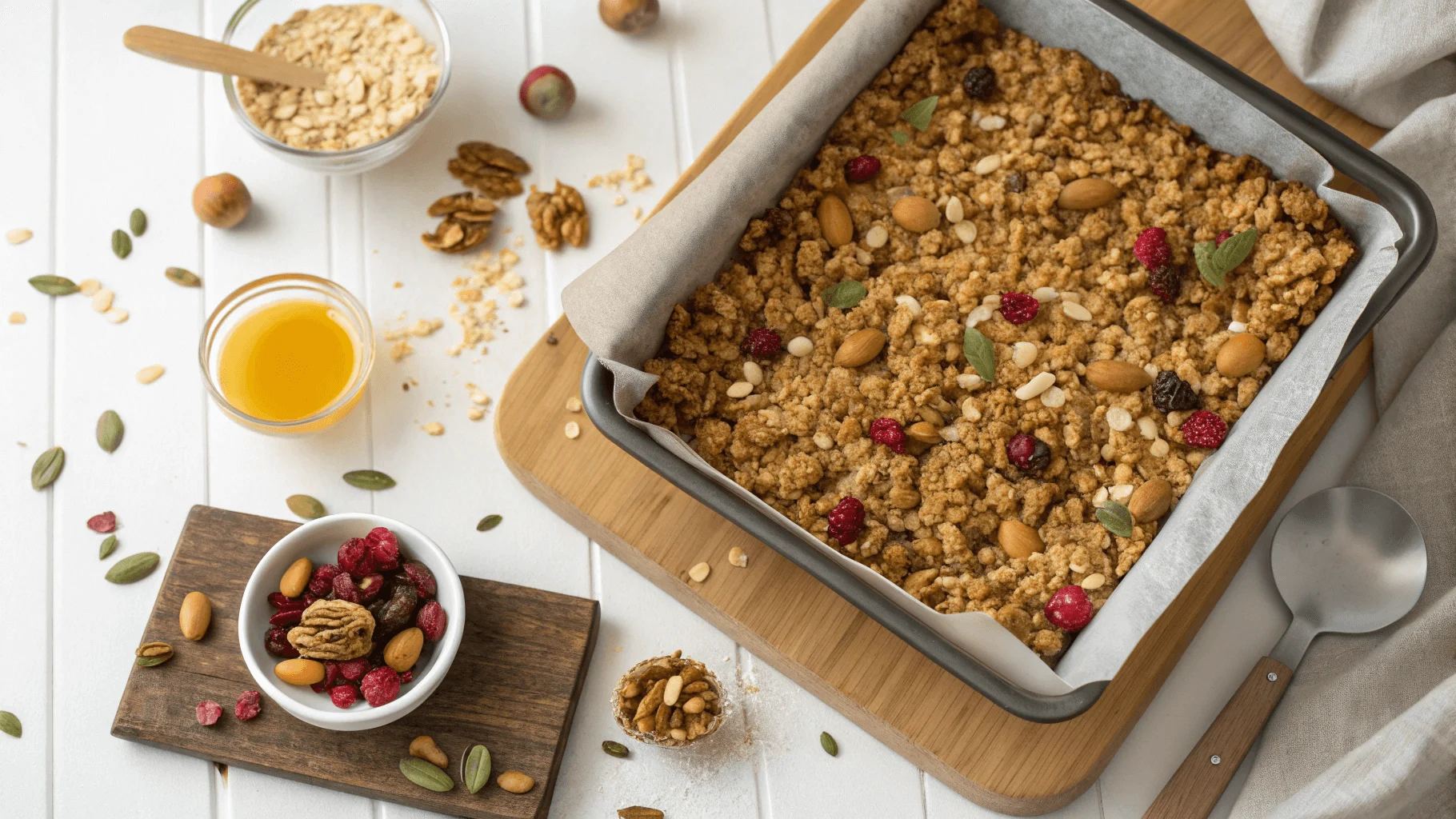Bisquick has become a kitchen staple for many due to its convenience and versatility. From pancakes to biscuits, it simplifies the cooking process, offering a pre-mixed solution for baking. However, there are times when you may need to ask, What can you substitute for Bisquick in a recipe? Whether you’re following a specific diet or simply out of stock, finding the right alternative is key to maintaining the integrity of your dish. In this guide, we’ll explore the best substitutes for Bisquick that you can use in a variety of recipes.
Why Bisquick is Commonly Used in Recipes
Bisquick has earned its reputation for being a quick and easy option when you need a baking mix in a pinch. It combines flour, fat, salt, and leavening agents, allowing you to make everything from pancakes to cookies without needing to measure out each ingredient. This convenience is why Bisquick is such a popular choice in the kitchen. But what happens when you’re out of Bisquick or need an alternative for dietary reasons? For example, you can explore how to make perfect sausage balls without Bisquick to manage this challenge effectively.
The Need for Substitutes: Why You Might Need Bisquick Substitutes
While Bisquick is versatile, there are times when it simply doesn’t fit the bill. You might have a dietary restriction, be out of stock, or prefer to avoid processed foods. Understanding your recipe’s needs—whether it requires leavening agents, texture, or flavor—is crucial when considering what can work as a Bisquick substitute. To address this, how to make sausage balls without Bisquick is a helpful resource for creating comparable results in different recipes.
What is Bisquick?
Overview of Bisquick as a Pre-mixed Baking Product
Bisquick is a pre-mixed product designed for convenience. Essentially, it combines flour, baking powder, salt, and fat to create an all-in-one baking mix. This allows cooks to save time by eliminating the need to measure and mix these basic ingredients. The simplicity of Bisquick makes it an attractive option for busy cooks or those who prefer quick solutions in the kitchen. However, it’s important to know what to substitute for Bisquick if you are dealing with specific dietary needs or running low on stock.
Key Ingredients in Bisquick and How to Substitute Them
The primary ingredients in Bisquick include all-purpose flour, baking powder, salt, and vegetable shortening or another fat. These ingredients come together to create a versatile mix that can be used in a variety of baked goods, from pancakes and waffles to biscuits and cookies. Understanding these components can help you find suitable alternatives when you need them. For example, if you’re looking to avoid processed fats, you can make your own Bisquick substitute by using healthier fats or different flour combinations.
Why Substitute Bisquick in a Recipe?
Common Dietary Restrictions: Gluten-Free, Vegan, Low-Carb, and More
There are many reasons why someone might need to find an alternative to Bisquick. Common dietary restrictions, such as gluten intolerance, vegan preferences, or low-carb diets, can all make Bisquick an unsuitable option. For example, Bisquick contains gluten and dairy, making it unsuitable for those following a gluten-free or dairy-free diet. Similarly, people on low-carb diets may need to avoid the high carbohydrate content of Bisquick. If you are wondering What can you substitute for Bisquick in a recipe?, it’s essential to look for alternatives that cater to these specific needs without compromising the dish’s flavor or texture.
Health and Taste Considerations for Choosing a Bisquick Substitute
Health considerations often go hand-in-hand with taste preferences. For example, you might want to substitute Bisquick because you’re trying to reduce your sugar intake or avoid certain preservatives. The right substitute will depend on what you’re making and your dietary preferences. Some substitutes may have a stronger flavor, while others might alter the texture of the final product. Whether you are making pancakes or biscuits, choosing the right substitute is essential for maintaining both taste and texture.
Common Bisquick Substitutes
Flour and Baking Powder: The Simplest Bisquick Substitute
One of the simplest substitutes for Bisquick is a combination of all-purpose flour and baking powder. If you’re out of Bisquick but have these two ingredients on hand, you can easily recreate the same mix. The typical ratio is 1 cup of flour to 1 ½ teaspoons of baking powder. This substitution works well in most recipes, as it mimics the leavening effect that Bisquick provides. For a more specific approach to replacing Bisquick, read how to prevent dry sausage balls, which tackles related cooking issues.
Homemade Bisquick Mix: A Simple DIY Bisquick Substitute
If you prefer to make your own Bisquick substitute, it’s quite simple to do so. By combining flour, baking powder, salt, and a fat (such as butter or shortening), you can create your own homemade Bisquick mix. This gives you complete control over the ingredients, making it a great choice for those with dietary restrictions. The advantage of making your own Bisquick mix is that you can adjust the ratios to fit your recipe’s specific needs.
Gluten-Free Substitutes for Bisquick
Almond Flour and Nut Flours as Gluten-Free Bisquick Substitutes
If you need a gluten-free substitute for Bisquick, almond flour and other nut flours are excellent choices. These flours work well in a variety of recipes, from pancakes to cookies, as they provide a rich texture and flavor. Almond flour, in particular, is a popular gluten-free option that’s high in protein and low in carbohydrates. It’s a good alternative when you need to avoid gluten but still want to maintain a rich, flavorful dish. If you’re looking for a gluten-free Bisquick substitute, almond flour can be a fantastic option.
Rice Flour and Cornstarch: Easy Gluten-Free Substitutes for Bisquick
Another great gluten-free alternative is a combination of rice flour and cornstarch. Rice flour is often used in gluten-free baking due to its light texture, and cornstarch helps to add tenderness to the final product. This mixture can be used as a direct substitute for Bisquick in many recipes, including pancakes and muffins. If you’re wondering What can you substitute for Bisquick in a recipe?, this combination is simple to use and produces excellent results.
Substituting Bisquick in Pancakes and Waffles
How to Use Almond Flour or Rice Flour for Pancakes and Waffles
When substituting Bisquick for pancakes or waffles, almond flour and rice flour are some of the best alternatives. Almond flour tends to make pancakes more tender and gives them a nutty flavor, while rice flour provides a lighter texture. To use either of these flours, you will need to adjust the liquid content in your recipe, as both flours absorb liquid differently than Bisquick. Additionally, you might want to add a binding agent such as eggs or flaxseeds for structure.
Adjusting Liquid Ratios When Using Gluten-Free Bisquick Substitutes
One of the most important considerations when substituting Bisquick for pancakes is adjusting the liquid ratios. Since gluten-free flours like almond flour or rice flour absorb liquid differently, you may need to increase the amount of liquid to achieve the right batter consistency. Start by adding small amounts of liquid and gradually increase until you get the desired texture. This will ensure that your pancakes are light and fluffy, even without Bisquick.
Bisquick Substitutes for Biscuits and Muffins
Substituting Bisquick with All-Purpose Flour and Baking Powder
When making biscuits or muffins, one of the simplest substitutions for Bisquick is to use all-purpose flour and baking powder in place of the pre-mixed blend. This works well for recipes that call for a light and fluffy texture. The ratio for this substitute is typically 1 cup of flour to 1 ½ teaspoons of baking powder. You can also add a pinch of salt and a fat such as butter or shortening to complete the mixture.
The Best Flours for Light and Fluffy Biscuits and Muffins When Substituting Bisquick
To get the best results when substituting Bisquick for biscuits and muffins, the right flour is essential. Cake flour and self-rising flour are excellent options for light and fluffy results. These flours have a lower protein content, which helps create a soft texture. You can also experiment with combinations of flours to find the texture that best suits your needs.
Substituting Bisquick for Cake Mix
How to Create a Cake Mix Alternative Using Flour and Sugar
If you’re wondering What can you substitute for Bisquick in a recipe for cake mix?, it’s easy to make your own cake mix using basic ingredients. Start by mixing flour, sugar, baking powder, and a pinch of salt. You can also add a little bit of cornstarch for a lighter texture. This homemade alternative works well for cakes, as it mimics the basic ingredients found in cake mix.
Using Cornstarch and Baking Powder to Create a Light Cake Texture
To achieve a lighter cake texture when substituting Bisquick, you can add cornstarch along with baking powder. Cornstarch helps to create a more delicate crumb, making it ideal for cakes and cupcakes. The combination of these ingredients can result in a fluffy, tender cake that closely resembles one made with store-bought cake mix.
Vegan Substitutes for Bisquick
Substituting Eggs and Dairy in Bisquick-based Recipes
If you’re looking for a vegan Bisquick substitute, you’ll need to replace the eggs and dairy commonly found in Bisquick recipes. Flaxseed meal or chia seeds can be used to replace eggs, while plant-based milks such as almond or soy milk can substitute dairy. You can also use vegan butter or coconut oil instead of the fat found in Bisquick. This will allow you to make Bisquick-based recipes without sacrificing flavor or texture.
The Best Dairy-Free and Egg-Free Options for Bisquick Substitutes
For those avoiding dairy and eggs, the best substitutes for Bisquick are plant-based alternatives. Almond flour, coconut flour, and oat flour can be used to create a dairy-free, egg-free mix. By adding baking powder and a fat such as coconut oil, you can replicate the texture of Bisquick while keeping your dish vegan-friendly.
Using Oat Flour as a Bisquick Alternative
How Oat Flour Works as a Substitute for Bisquick in Various Recipes
Oat flour is a versatile, gluten-free alternative that can be used in place of Bisquick in many recipes. It has a mild flavor and works well in pancakes, waffles, and baked goods like muffins. When using oat flour, you may need to adjust the liquid ratio, as it absorbs moisture differently than all-purpose flour. This flour is especially useful for those on gluten-free diets or anyone seeking a healthier alternative to refined flour.
Adjusting Recipe Ratios When Using Oat Flour as a Bisquick Substitute
When substituting oat flour for Bisquick, you’ll need to adjust your recipe’s ratios. Oat flour tends to create a denser texture than traditional flours, so you might need to add more liquid to achieve the desired consistency. Additionally, since oat flour lacks gluten, you may want to add a binding agent such as xanthan gum or guar gum to ensure your recipe holds together properly.
Tips for Successful Substitutions
Balancing Flavor and Texture When Using Bisquick Substitutes
The key to a successful Bisquick substitution lies in balancing the flavor and texture of the final product. Each substitute has its unique characteristics, which can affect the taste and texture of your dish. For example, using almond flour will provide a nuttier flavor, while rice flour results in a lighter texture. Pay attention to your recipe’s requirements and be ready to adjust your ingredients as needed to achieve the best results.
Experimenting with Different Bisquick Substitutes for Best Results
Don’t be afraid to experiment with different substitutes to find the one that works best for your recipe. Sometimes a combination of substitutes might be necessary to achieve the desired flavor and texture. For example, blending almond flour and rice flour can give you the best of both worlds: the richness of nuts and the lightness of rice.
Potential Mistakes to Avoid
Common Mistakes to Avoid When Using Bisquick Substitutes
When substituting Bisquick, there are a few common mistakes to watch out for. One of the most frequent errors is failing to adjust the liquid ratios properly. Different flours absorb liquid in unique ways, so be prepared to make adjustments to your recipe. Additionally, not considering the flavor profile of your substitute can result in a dish that doesn’t taste quite right. To avoid these mistakes, always test your substitutions on a small scale before making a large batch.
FAQs
What can you substitute for Bisquick in a recipe for pancakes?
You can use a combination of flour, baking powder, and fat to replace Bisquick in pancakes. For gluten-free options, try almond flour or rice flour.
Can I substitute Bisquick with regular flour?
Yes, but you will need to add baking powder and salt to recreate the leavening effect of Bisquick.
How do I make a homemade Bisquick substitute?
Simply combine flour, baking powder, salt, and a fat like butter or shortening to create a homemade version of Bisquick.
Is there a gluten-free substitute for Bisquick?
Yes, options like almond flour, rice flour, and oat flour are excellent gluten-free alternatives.
Can I substitute Bisquick for a cake mix?
You can create a cake mix alternative by combining flour, baking powder, sugar, and cornstarch.
How do I substitute Bisquick in recipes that require baking powder?
If your recipe calls for Bisquick and baking powder, use a combination of flour and baking powder in place of Bisquick.
Conclusion
When you find yourself in need of Bisquick substitutes, there are numerous options available, from flour and baking powder to more specialized ingredients like almond flour and oat flour. With the right Bisquick substitutes, you can create delicious recipes that suit your dietary needs without compromising on flavor or texture. Whether you’re making pancakes, muffins, or biscuits, finding the perfect alternative is just a matter of knowing which ingredients work best in your recipe.






3 thoughts on “Best Bisquick Substitutes For Every Recipe You Love”